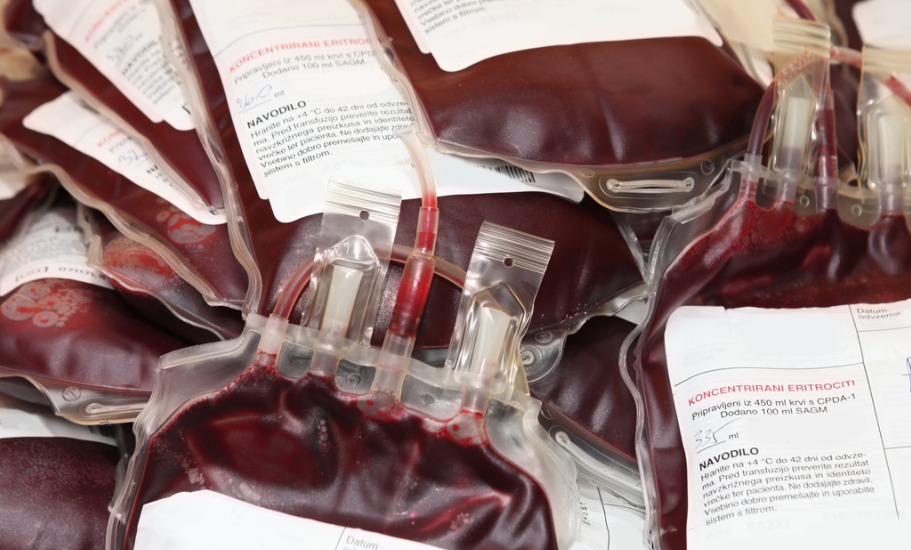
COVID-19 restrictions lead to acute shortage of blood in West Bengal
Even before the coronavirus scare had set in, only a handful of donation camps could be held in the state due to the long-spell of school board exams and a slew of programmes for and against the Citizenship (Amendment) Act and the National Register of Citizens, leading to further worsening of the crisis.

For the past four days, Santosh Kamaliya has been hopping from one blood bank to another looking for a unit of blood for his 15-month-old baby daughter diagnosed with thalassemia major.
Every month, she needs to be transfused one unit of blood, and last Saturday was the due date for her monthly transfusion.
Kamaliya was up for a shock when he visited the Life Care Blood Bank at Kolkata’s Linton Street, from where he regularly procures blood for his daughter, Subhadra. To his dismay, the blood bank said it had gone dry.
“Since then, I have visited almost all the blood banks in the city, but in vain. Most of them directly expressed their helplessness as they were out of stock, while some others were willing to supply provided I could refill their depleted stock with another unit of blood of the same group that of my daughter,” said Santosh.
The blood group of his daughter is O positive. “I myself had offered to donate blood. But my blood group is B positive and they insisted on the same group,” he added.
According to an official at the Institute of Blood Transfusion Medical and Immuno Haematology (Central Blood Bank), the storage level in the state’s over 115 functional banks has plummeted far below the mandatory 20 units per group.
Unless it’s absolute emergency, banks are not giving blood without getting a refill of the same group, the official said.
The crisis has been triggered by the suspension of all blood donation camps across the state to avoid mass gatherings to prevent any spread of the COVID-19, said Sudeb Mitra, secretary, Association of Voluntary Blood Donors, West Bengal.
Related news: PM Modi announces 21-day India lockdown from midnight
In the past seven days, not a single donation camp could be held anywhere in the state, causing the crisis, Mitra told The Federal.
Even before the coronavirus scare had set in, only a handful of donation camps could be held in the state due to the long-spell of school board exams and a slew of programmes for and against the Citizenship (Amendment) Act and the National Register of Citizens, leading to further worsening of the crisis.
“We were supposed to hold a donation camp earlier this month. But due to the government’s directive against any crowding, we have indefinitely postponed it,” said Rakesh Chandra, a member of the Janakalyan Samiti, a local club at Kalitala in Kolkata’s Joka area.
In Bengal, which pioneered the blood donation movement in the country, over 90 per cent of the state’s annual requirement of 12.5 lakh units of blood come from donation camps, mostly organised by political parties and local clubs patronised by them, Mitra pointed out. Hence, the prolonged political activities over CAA-NRC just before the coronavirus onslaught too had taken a toll on the blood supply.
Since registered volunteers too are reluctant to visit blood banks for donation, fearing they might get infected, the families of patients are finding it difficult to get donors for refill, said Mitra.
To overcome the crisis, the state health department is now contemplating permission for blood donation camps with certain guidelines such as not more than 30 donors to be allowed per camp; a minimum distance of one metre between the beds of two donors to be maintained and not more than five volunteers to be allowed to donate blood at a time.
Related news: Lockdown phase is crucial for India, adhere to physical distancing: Experts
The other guidelines would include certain restrictions on donors such as volunteers should not be suffering from any ailment and must not have a history of travelling outside the state in the past 28 days, said sources in the health department.
Various organisations will be asked to conduct the camps once the guidelines are approved by Chief Minister Mamata Banerjee, who also holds the health portfolio, added sources.
The crisis would have been worse had the restrictions pertaining to COVID-19 crisis not dipped the demand for blood.
“The only saving grace is that there is now a fall in demand. All non-emergency surgical cases have been postponed and incidents of road accident too have minimised to almost zero due to lockdown,” pointed out an official of the health department.
At present, patients with thalassemia, leukemia, and gynaecological disorders are the ones mostly bearing the brunt of the blood shortage across the state.
A health ministry report titled ‘National Estimation of Blood Requirement in India’ stated that according to available estimates, 70 per cent of post-partum haemorrhage-related deaths are due to lack of immediate availability of blood. And that sums up the crisis.

